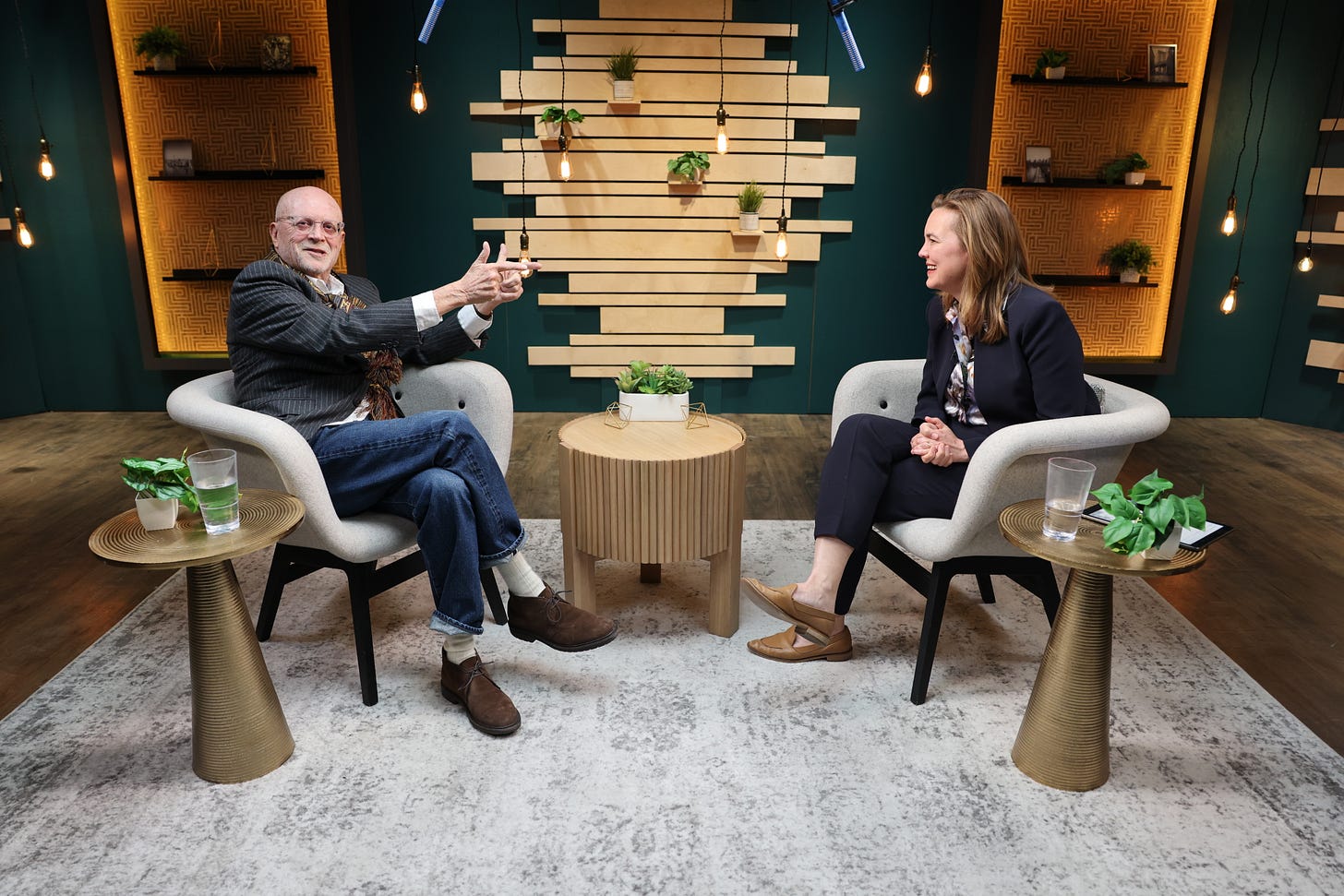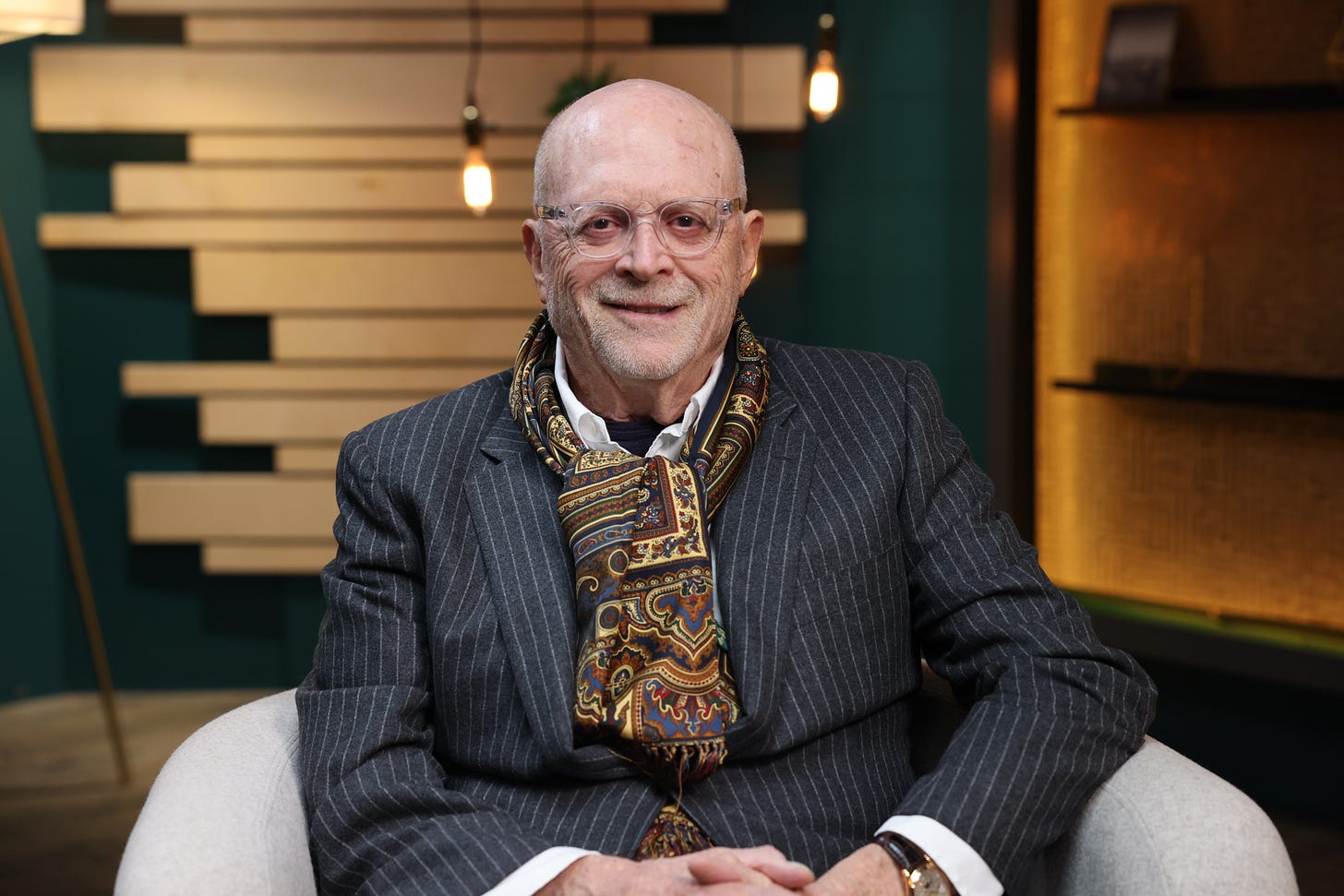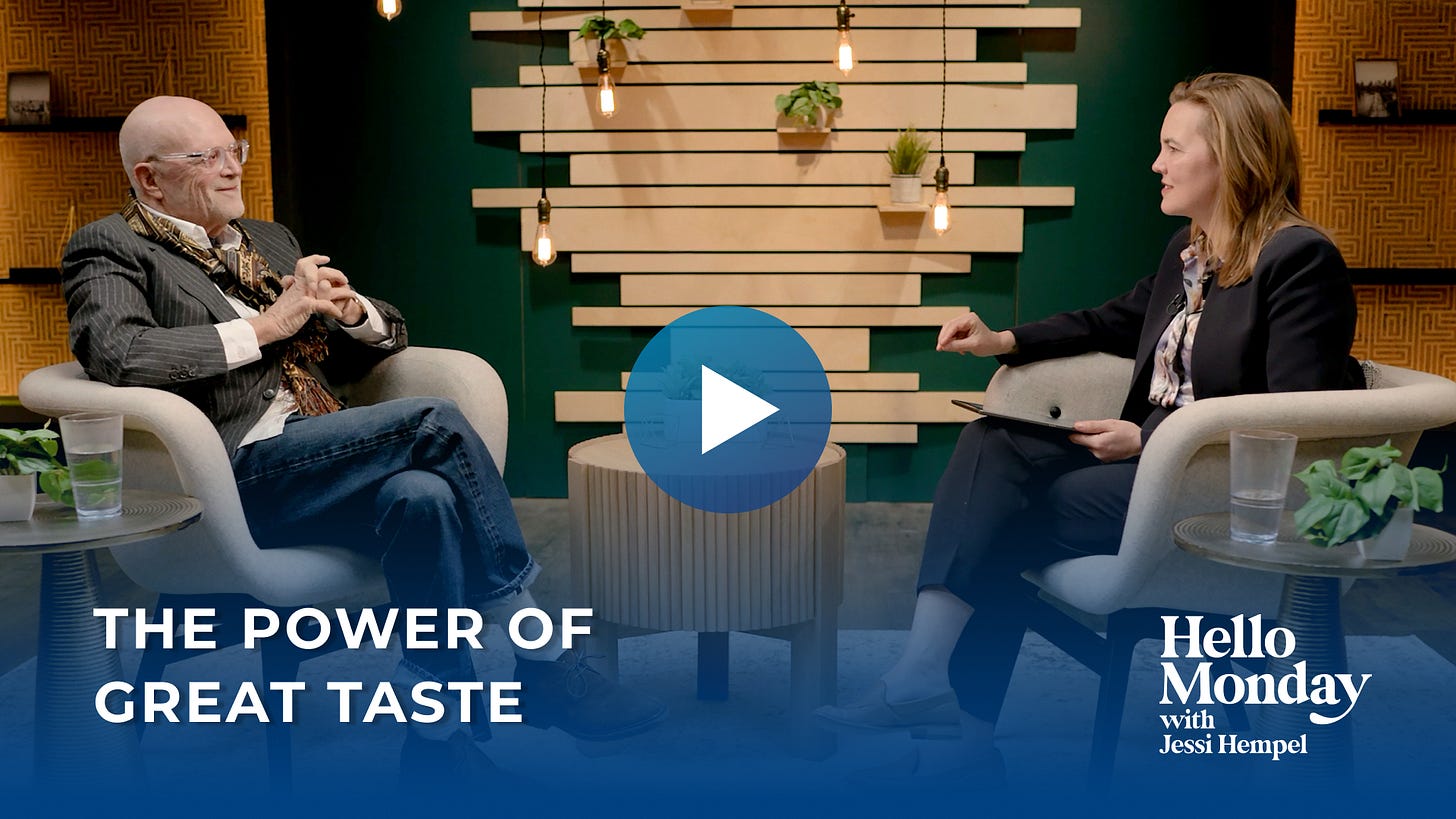The Hidden Pattern Behind Good Taste
The simple behaviors that turn gut feelings into game-changing insights.
Taste is a trait that defies logic. It’s the quality of knowing what’s ahead. People with good taste define not just what they love, but what others will embrace. They combine the pattern recognition of experience with deep intuition. They act from the gut.
In my new favorite newsletter, The Leverage, author
describes his mission: “My goal isn’t just analysis, it’s helping you build taste. I want you to feel what comes next the way a great investor senses momentum before the chart shows it.”Clearly, taste is increasingly valuable. So can you hone it?
🎧 Check us out on LinkedIn, YouTube, Apple Podcasts or Spotify 🎧
Mickey Drexler has been defining retail since long before I began reporting on business. He knows what people will love.
For this week’s episode, I set out to interrogate one of our culture’s most successful tastemakers. Mickey Drexler is a taste savant. You might not know his name, but you know his work: he made khakis cool in the ’90s at Gap, invented Old Navy, resurrected J.Crew, launched Madewell, and now, at 81, he’s running Alex Mill with his son.
To listen to Mickey talk is to understand something about the work of cultivating taste. He recognizes the value of curiosity. He’s obsessed with people, regardless of the power they hold in any system. He is struck immediately by the things he likes, and he trusts this feeling completely. Mickey can name the emotional cues that help him recognize his instincts.
Maybe these tips and all of his other observations will be useful to you as you attempt to cultivate this trait in relation to what you care most about. Here are a few of the things you’ll take from this conversation:
Taste alone isn’t enough. Mickey pairs his creative instincts with sharp business judgment—and an obsession with listening. “Meet all the people,” he says. “Who are the players? Who aren’t the players? Who are you going to bet on?”
Curiosity fuels longevity. Decades in, Mickey still treats his work like detective work, hunting for clues in everyday places. (“You don’t have to go to Europe to get ideas. Go to your favorite store.”)
Your instincts are in the details. If you’re unsure about a new idea, notice the moments when something makes you physically react—a jump, a spark. That’s where taste begins.
If you’ve been feeling stuck or searching for what’s next, Mickey’s approach is a reminder: stay curious, stay connected, and trust that your taste—refined through years of noticing—just might be your edge.
🤓 Worth it….
Meta’s flirty AI chatbot invited a retiree to New York. by Jeff Horowitz (Reuters)
We cannot read too many stories about how exactly the relationships between chatbots and people—especially the more vulnerable among us—play out. In this piece of strong reporting, Jeff unpacks the relationship between a 76-year-old man from New Jersey and a Facebook Messenger chatbot called “Big sis Billie.” The software invited him to its house, even providing an address in Manhattan. He headed off to meet the object of his infatuation…and never came home.
The ‘godfather of AI’ reveals the only way humanity can survive superintelligent AI by Matt Egan (CNN)
Geoffrey Hinton is one of AI’s godparents. A Noble Prize winning scientist and former Google exec, he’s pretty outspoken about his concerns that AI might wipe out humans. Speaking at an industry conference last week, he had a novel suggestion: building “maternal instincts” into AI models, so “they really care about people” even once the technology becomes more powerful and smarter than humans.
🤓 Double Worth it….
Former hostage negotiator Chris Voss wrote the best book on negotiating that I’ve read, Never Split The Difference. A couple months ago, I had him into the studio and our interview comes out in a few weeks. The conversation has really left its imprint on me, in part because it has changed the way I speak to my six year old. So I was intrigued to see that he was featured as New York Times subject for their weekly series, “The Interview.” The title: This World-Renowned Negotiator Says Trump’s Secret Weapon Is Empathy
You can listen to it on The Daily, but if you’re reading, skim through until you get to this question for a moment that has left me thinking….
How did the word “tactical” get put in front of it? Because you want to appeal to men? That’s exactly it. Empathy is thought of as: “Oh, I feel bad for you. I’m on your side.” This soft, spongy thing. Back when Hillary Clinton ran for president, she said, I’m going to use empathy in international negotiations, and she gets barbecued for it as if it’s weakness. It’s not. So we threw the word “tactical” in front of it. The same way you can’t teach a Navy SEAL “yoga breathing”; you’ve got to tell them it’s “tactical breathing.”
I forget how gendered our language can be. Chris seems to intuit that, and to realize the way to get the right people to pay the right kind of attention is to shift the words we use to convey our most important ideas.





